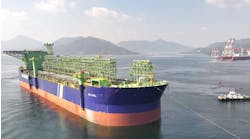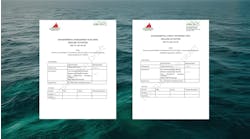Offshore staff
WASHINGTON, D.C. – The Bureau of Safety and Environmental Enforcement (BSEE) has released the Safety and Environmental Management Systems (SEMS) II final rule.
The new release “provides greater protection by supplementing operators’ SEMS programs with greater employee participation, empowering field level personnel with safety management decisions, and strengthening oversight by requiring audits to be conducted by accredited third-parties.”
This is an adjunct to the Workplace Safety Rule that became effective Nov. 15, 2010, and required operators to implement a SEMS program by Nov. 15, 2011, and to submit a first complete SEMS audit to BSEE by Nov. 15, 2013. The SEMS II Rule becomes effective on June 4, 2013. Operators have until June 4, 2014 to comply with the provisions of the SEMS II Rule, except for the auditing requirements. All SEMS audits must be in compliance with the SEMS II Rule by June 4, 2015.
This comes on the heels of BSEE’s Dec. 20, 2012, Draft Safety Culture Policy Statement that outlines the administration’s approach to establishing a “common definition” for all offshore workers and to inform operators of BSEE’s safety expectations. Elements of a final Safety Culture Policy Statement are under consideration.
The SEMS II final rule expands, revises, and adds several new requirements to the existing 30 CFR part 250, subpart S, regulations for SEMS.
The additional safety requirements contained in this final rule that were not covered in previous regulations include:
• Developing and implementing a stop work authority that creates procedures and authorizes any and all offshore industry personnel who witness an imminent risk or dangerous activity to stop work.
• Developing and implementing an ultimate work authority that requires offshore industry operators to clearly define who has the ultimate work authority on a facility for operational safety and decision-making at any given time.
• Requiring an employee participation plan that provides an environment that promotes participation by offshore industry employees as well as their management to eliminate or mitigate safety hazards.
• Establishing guidelines for reporting unsafe working conditions that enable offshore industry personnel to report possible violations of safety, environmental regulations requirements, and threats of danger directly to BSEE.
• Establishing additional requirements for conducting a job safety analysis.
• Requiring that the team lead for an audit be independent and represent an accredited audit service provider.
It also makes mandatory elements of the American Petroleum Institute’s (API) Recommended Practice 75 (RP 75).
4/05/2013


